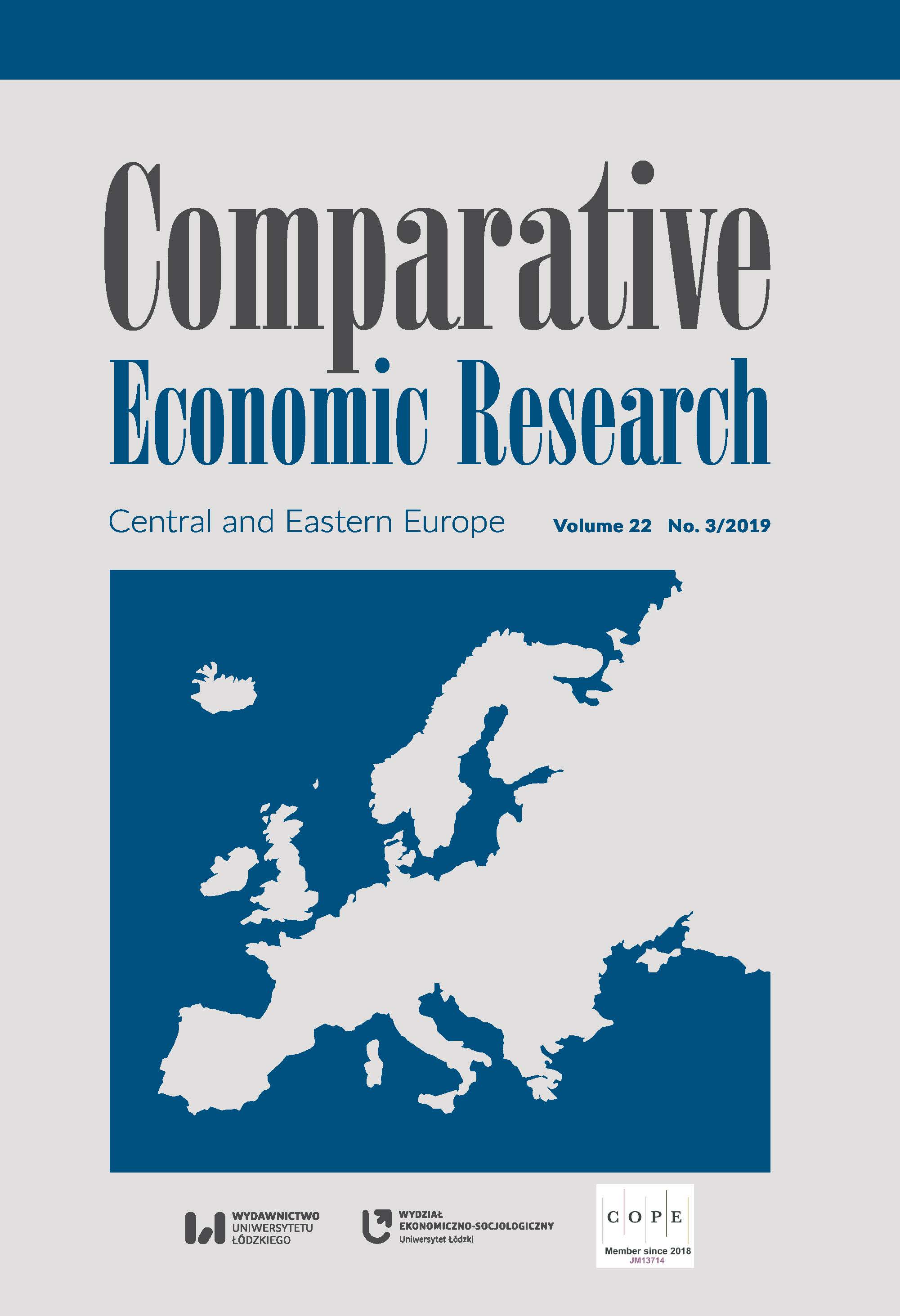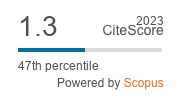A Comparative Analysis of Fiscal Policy Changes in Selected European Union Countries outside the Eurozone
DOI:
https://doi.org/10.2478/cer-2019-0027Keywords:
fiscal stance, cyclically‑adjusted primary balance, non‑Eurozone countriesAbstract
The aim of this article is to investigate the fiscal policy changes in six Central and Eastern European countries outside the Eurozone: Bulgaria, the Czech Republic, Croatia, Hungary, Poland and Romania. The analysis covers the period from 2004 to 2017. The study uses changes in the cyclically‑adjusted primary balance as a main indicator to assess the fiscal policy stance. The results indicate that, in general, over the period from 2004 to 2017, the fiscal stance in these countries was somewhat contractionary.
Downloads
References
Ademmer, E., Boeing‑Reicher, C., Boysen‑Hogrefe, J., Gern, K.J., Stolzenburg, U. (2016), Euro area fiscal stance: definition, implementation and democratic legitimacy, Directorate‑General for the Internal Policies of the Union, European Parliament.
Google Scholar
Alesina, A., Campante, F., Tabelini, G. (2008), Why is fiscal policy often procyclical. “Journal of the European Economic Association” 65, pp. 1006–1036.
Google Scholar
Arsic, M., Nojkovic, A., Randjelovic, S. (2017), Determinants of discretionary fiscal policy in Central and Eastern Europe, “Economic Systems”, 41 (3), pp. 367–378.
Google Scholar
Atoyan, R., Jaeger, A., Smith, D. (2012), The pre‑crisis capital flow surge to emerging Europe: Did countercyclical fiscal policy make a difference? IMF Working Paper No. 12/222. International Monetary Fund, Washington, D.C.
Google Scholar
Bańkowski, K., Ferdinandusse, M. (2017), Euro area fiscal stance, EBC Occasional Paper Series, Paper No. 182, January 2017.
Google Scholar
Cimadomo, J. (2005), Has the Stability and Growth Pact made fiscal policy more pro‑cyclical?, La Lettre du CEPII, No. 247, July‑August, Paris.
Google Scholar
Coricelli, F. (2004), Fiscal policy in an enlarged EU. Revue de l’OFCE No. 91, 191–208.
Google Scholar
Davis, J.M. (1995), Guidelines for fiscal adjustment, IMF, Pamphlet Series, No. 49, December.
Google Scholar
European Central Bank (2016), The euro area fiscal stance, Economic Bulletin, Issue 4/2016.
Google Scholar
European Central Bank (2018), EBC Economic Bulletin, Issue 2/2018.
Google Scholar
European Commission (2009), Public finances in EMU, European Economy 5/2009.
Google Scholar
European Commission (2016), Towards a positive euro area fiscal stance. Supporting public investments that increase economic growth, EPSC Strategic Notes, issue 20.
Google Scholar
European Commission (2018), European economic forecast. Autumn 2018, Institutional Paper 089.
Google Scholar
European Commission (2018a), Debt sustainability monitor 2017, Institutional Paper 071. January.
Google Scholar
European Commission (2018b), Cyclical adjustment of budget balances. Autumn 2018. Directorate‑General for Economic and Financial Affairs.
Google Scholar
Gali, J., Perotti, R. (2003), Fiscal policy and monetary integration in Europe. Economic Policy 18 (37), pp. 533–572.
Google Scholar
Gavin, M., Perotti, R. (1997), Fiscal policy in Latin America, [in:] Bernanke, B., Rotemberg, J. (eds.), NBER Macroeconomics Annual 1997. MIT Press, Cambridge, MA, pp. 11–72.
Google Scholar
IMF (2004), World Economic Outlook. September 2004: The Global Demographic Transition, IMF.
Google Scholar
Kaminski, G., Reinhart, C., Vegh, C. (2004), When it rains, it pours: Procyclical capital flows and macroeconomic policies, [in:] Getler, M., Rogoff, K. (eds.), NBER Macroeconomics Annual 2004. MIT Press, Cambridge, MA.
Google Scholar
OECD (2002), Fiscal stance over the cycle: The role of debt, Institutions and Budget Constraints. OECD Publishing, Paris.
Google Scholar
Philip, R., Janssen, J. (2002), Developing an indicator for fiscal stance for New Zealand, [in:] The Impact of Fiscal Policy, book of proceedings of Workshops on Public Finance – Perugia, 21–23 Marzo 2002, Banca d’Italia, pp. 189–214.
Google Scholar
Uryszek, T. (2015), Long‑term sustainability of public finance in the Central and Eastern EU Member States, “Comparative Economic Research. Central and Eastern Europe”, 18 (4), pp. 47–61.
Google Scholar
Downloads
Published
How to Cite
Issue
Section
License

This work is licensed under a Creative Commons Attribution-NonCommercial-NoDerivatives 4.0 International License.











